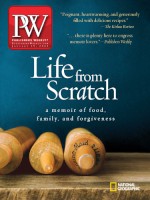Recently, my boss (the mayor of White Plains) brought together some of the city’s commissioners to discuss the various projects we hope to launch in 2015, with the idea that we may find opportunities to work with one another. As the library director, I pitched a few things, such as extending the physical reach of the library, either through pop-up libraries or a mobile library. And then I raised another project—mumbled it, really: a One Community, One Book program for White Plains.
One Book programs have been with us since 1998, when Nancy Pearl, who was then director of the Washington Center for the Book in the Seattle Public Library, initiated If All Seattle Read the Same Book. I mumbled my suggestion because 17 years later, One Book projects are hardly cutting edge, and, with the novelty worn off, I doubted anyone would get excited about the idea. I couldn’t have been more wrong. The heads of other city agencies in White Plains were all over the idea, eager to jump in and become partners, some even expressing a sense of urgency.
Within days after the meeting I was fielding calls asking what book we had selected. I found myself having to reel the idea back and slap a “Coming soon!” sticker over it. And I found myself thinking more about a One Book program’s merits, and challenges, in 2015.
Contrary to my initial feelings, I am now convinced that the One Book concept is more relevant than ever before. Certainly, the U.S. is more socially stratified today than in 1998. Race relations, rising economic inequality, immigration, climate change, the effects of technology on our privacy... These are just a handful of the issues begging for a deeper conversation in 2015. But as a library director and a community leader, I am also convinced that it’s time for One Book programs to up their game. And that’s what I am wrestling with now: how to make a One Book project truly successful?
One stumbling block to success, not surprisingly, is funding. For a One Book program to be successful, access can’t be a barrier to participation. I need to support a marketing plan that will reach new readers in unexpected ways. I want to blanket my community with the book we select, purchasing enough copies, print and digital, to freely distribute through schools, the Youth Bureau, Recreation and Parks, and book groups. Unfortunately, the only major source of funding for One Book programs is the Big Read from the National Endowment for the Arts (NEA), which provides grants ranging from $2,500 to $20,000. But there is a catch: to get an NEA grant, you have to use one of its 37 approved titles. And that collection looks like it was assembled by a committee of bitter retired English professors. It consists mostly of dead authors and has an average publication date of 1953. Trust me, I get the value of the classics. But who wants to convince his or her community that its One Book choice isn’t an old homework assignment? I would also like to have an author visit, which means I not only need a budget, I need a living author.
But I am also thinking about the selection process more fundamentally. In recent months, the Harwood Institute for Public Innovation, in partnership with the ALA, has spearheaded an initiative that urges public libraries not to simply respond to community needs but to actively lead. Dubbed Libraries Transforming Communities (LTC), the program encourages library leaders to seek a deeper understanding of their community’s aspirations and challenges, and to design programs and services to meet their goals. Typically, the community is involved in helping choose the title it reads in a One Book program. But rather than voting on a list of NEA-suggested titles, why not incorporate the Harwood model? Why not listen to the community’s needs and choose a book that speaks to our common goals and aspirations? In this case, the library wouldn’t be promoting a One Book program so much as prescribing a book in response to the community’s needs.
When I polled my peers at the other city agencies about what kind of book we should select, they expressed a simple desire: pick a book that will bring people together and generate discussion throughout the city about an important issue. I believe that a great book has the power to do just that: to bring people together—no small feat in an age when technology and social media have cast a paradoxical spell, bringing us closer while keeping us farther apart. And getting this right matters. After all, it’s not One Book that we’re pushing, but a lifetime of books.



 Volume 262
Issue 03
01/19/2015
Volume 262
Issue 03
01/19/2015





